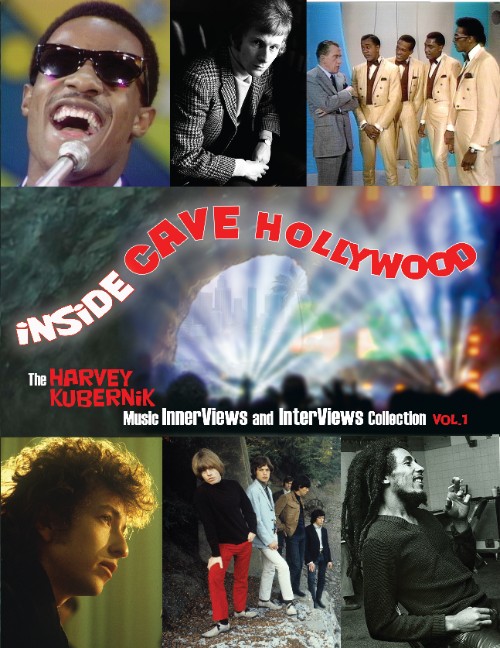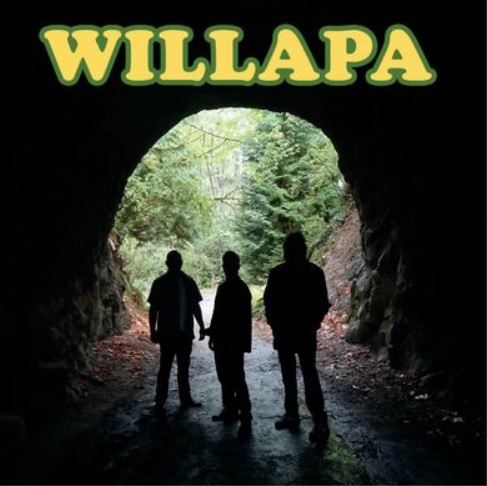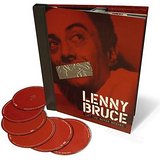By Harvey Kubernik c 2009 c 2011 c 2017
Walter Becker, songwriter, guitarist, bassist and co-founder of Steely Dan with Donald Fagen has died this past Sunday at the age of 67. No cause of death was announced.
Fagen wrote a posted tribute to Becker, stressing, “I intend to keep the music we created together alive as I can with the Steely Dan band.”
In 1977, one night I co-hosted a late night radio program on KPFK-FM in North Hollywood with deejay and music writer/critic Richard Cromelin, then with The Los Angeles Times, and we actually debuted Steely Dan’s Aja tracks over the radio.
Steely Dan’s Donald Fagen and Walter Becker drove over from their Malibu pads and chatted for a couple of hours, happily whipped out their acetate test pressing of Aja and the phone lines lit up. The duo spun “Black Cow” and “Deacon Blues” and some vintage jazz library selections during the world premiere of Aja.
A decade ago I conducted a phone interview with Walter Becker. His solo album 11 Tracks of Whack had just been released while Steely Dan’s Alive In America, was just about to be, as was the band’s Citizen Dan box set.
Fellow Pisces Walter Becker was born in New York City in 1950. In the early ‘60s he had his mind blown by TV host/writer Steve Allen’s musical theme, “Gravy Waltz.” When I interviewed Walter in 1999, I gave him the Grammy certificate Randy Wood of Dot Records received after releasing this influential vinyl, courtesy of his son John Wood.
Walter Becker met Donald Fagen at Bard College in Annandale-on-Hudson in upstate New York. The school, and the town, served as the setting in “My Old School.”
Becker was later exposed to Miles Davis records and he picked up the tenor saxophone, Becker then heard Bob Dylan on the radio. He went to Manny’s music store and got himself a Martin Guitar, a harmonica and a harmonica holder. Walter subsequently learned some blues riffs from guitarist Randy Wolf, later Randy California of Spirit fame.
I was also aware that Howard Kaylan, then with longtime partner Mark Volman in Flo & Eddie, was asked to be the original lead singer of Steely Dan. As usual, Howard was loyal to Mark. Flo & Eddie are the backing vocalists on a pre-Steely Dan 1971 demo “Everyone’s Gone to the Movies.”
Steely Dan was formed in 1972 by staff songwriters Fagan (Keyboards/vocals) and Becker (guitar and bass) then based at ABC Records in Los Angeles and working with producer Gary Katz. I spent a lot of time at the label’s Beverly Blvd. office and studio.
The name Steely Dan was lifted from William Burroughs’ book The Naked Lunch, and is a name for a sex dildo toy. I met William Burroughs in L.A during the eighties and he was well aware of this “tribute.”
In 1972 the debut Steely Dan LP, Can’t Buy a Thrill, a direct lyric from Bob Dylan’s “It Takes a Lot To Laugh a Train To Cry” from his Highway 61 album hit the airwaves and the record shops.
Subsequently, Steely Dan sold more than 30 million albums worldwide and inducted into the Rock and Roll Hall of Fame in 2001.
My brother Kenneth and I saw the original band at the Whisky, their Hollywood debut, and also again at a venue in Glendale circa 1972, The Sopwith Camel. In
1974, I caught Steely Dan at their Midnight Special tapings in Burbank.
In 1974 I attended the last Steely Dan live landmark concert at the Santa Monica Civic Auditorium. In 1975 I interviewed Walt and Don at Gary Katz’s condo. I helped introduce band in the UK, via Melody Maker, even covered first LP vocalist David Palmer in the Grand Wazoo.
I was an occasional co-host with Richard Cromelin on his weekly KPFK-FM
radio show. We told the record label we were doing a show and would be playing some Steely Dan albums, along with Captain Beefheart.
A request was made for a Steely Dan phone interview. We thought that might happen, even though the program was midnight to 3:00 a.m. Then Captain Midnight the engineer said, “They are coming in with some jazz albums.”
I was later invited by Walter to a Root Boy Slim session at the ABC studio and his Roxy Theater debut.
On KPFK that night I remember thinking even then, how could they play this album at shows? Who is gonna get a deep drum groove like Jim Keltner and Ed Greene on the few tracks broadcast later in front of an audience?
When I was the West Coast Director of A&R for MCA Records 1978-1979, I also made the logical suggestion about Walt and Don doing some liner notes for the Impulse Records reissues due from our ABC label acquisition. I was greeted with some scorn from a few label folks.
Harvey Kubernik Interviews Walter Becker. (Initially done for HITS magazine in 1999)
Q: In seeing the original touring group in the ‘70s, and the ‘90s live gigs it’s fascinating that the audience who attend your concerts know you pretty much exclusively from radio exposure, reissues, and last year’s Citizen Steely Dan box set. The listeners know the music, your songs, and now twenty years later see the people, or the principal songwriters, etcetera, that put it together. The music defined you for and to the consumers.
A: For better or worse. A big bulk of the tunes that we are doing in concert we never performed them live. So we’re doing them live for the first time and that kind of gives it a little bit more of a credible recreation of something it might be.
Q: Roger Nichols (engineer and veteran board director sound man for Steely Dan) was involved in mixing your live sound.
A: When we came to L.A. in the early ’70s Roger was an archetypical –in our eyes—southern California guy… Sports car, scuba diving, filming auto races, all this stuff. That was a different lifestyle than anything Donald and I were familiar with and I think most of our interaction with Roger in those days was in the studio. I don’t think anyone showed us the ropes in L.A. Now I don’t really think there are any ropes in L.A.
Q: Maybe you have the best of both worlds. The people come and know the music, and know discover the players and the voices, and your own solo tunes in the process. They are here for the music and then the person.
A: Well that’s kind of neat. We were probably successful in what we were trying to do in the ’70s at projecting a kind musical persona that was not particularly you know, tied to one or two or five individuals and that was rather an outgrowth of our writing and recording style. And know –as you say—there is this bit of curiosity that is out there.
Q: Have the songs become even more rewarding because they now stood up to the test of time; 20 years on public display.
A: It’s funny, but that kind of thing probably happens more for listeners than for us playing them. We selected new songs we had never played before. And of the songs we had done years ago, we tried to diddle with them a little bit so that we’d feel fresh to play them and when we’re actually doing it that’s probably not so much the case for us than for people in the audience.
Q: Also, maybe with a couple of film scores, and some remastered reissues, Steely Dan, and especially the songs haven’t been commercialized.
A: As far as not having our songs commercialized or exploited, on the one hand people were not for the most part running out to do cheesy cover versions of our songs.
Q: Touring seems easier for you now. You smile on stage. And the more recent tour was better organized and less stressful than what I remember of the gigs in 1974. Back then the songs seemed rushed. Hectic.
A: Then, even on our best nights, it was this out of control kind of thing.
Q: You told Venice magazine “Donald and I were trying to do this well-orchestrated thing, and we had these wild men we were doing it with, including ourselves.”
A: Everybody was, uh, distracted by other elements in the traveling musician scenario. The thing is today, the scale at which we are doing it now makes it possible to call the shots in a much better way. And to plan things out. And the business of doing this has evolved to the point where it’’ very much a known technology and procedure. Everything has improved. I like playing live. It’s great fun, especially in this kind of context where basically everything is done for you and you kind of waltz in, and everything is pretty much perfect.
Q: O.K. You’ve been a staff writer with a publishing deal. You wrote for the band, Steely Dan’s catalog, and now, your own solo work. Are the disciplines the same in the writing situations?
A: I think the basic tools are the same and the basic skills are the same. And it’s been such a long time since I tried to write songs for other people and I think about doing it sometimes and I may sit down to try and do that again just to see what happens. But generally speaking, I don’t know how that would be again. Basically, it’s the same thing if you’re writing songs you know, and trying to put together the pieces of the song. On this album my original concept involved a very stripped down sound, with strong emphasis on melody and bass line, and not too much in the way of chording. The idea was to get a line of kind of spacious feel, where the harmonies were more defined by melodies and roots than spelled out with static vertical comping type chords. My first dilemma was, how do I go about writing by myself, that is, without Donald?
In our collaboration, he provided a lot of the harmonic direction and overall tonal framework, and his ability to develop great chord sequences, striking modulations, and so on, became an essential ingredient in our writing style. I decided to use a minimalist approach that would enable me to focus on the overall thrust of the song, rather than bogging down in harmonic complexities and ornaments that were perhaps irrelevant in the musical context of the day. When you’re collaborating, you often need to persuade your writing partner that an idea is interesting enough or strong enough to work with, and sometimes this is difficult or impossible to don.
When you’re working alone, you get to follow your hunches a lot more. I also took advantage of events unfolding in my immediate environs as subject matter for songs in a way that was somewhat different from what we used to do. Generally speaking, I tried to suspend my critical perception of what I was doing, musically and lyrically until I had completed something, so as to range out a bit into new areas. This experimental approach was helpful in maintaining a flow in my writing.
Q: Also, since I’ve followed Steely Dan since inception and even when you were tune writers after a road scene with Jay and The Americans, did you ever think both you and Donald could survive and flourish as band leaders in the record business? Brill Building to 10,000-15,000 seaters with your band, your songs?
A: To answer your question in a larger framework, I think when Donald and I started out we were arrogant enough to think we would be successful, in spite of the fact of what we were doing was as far off the beaten path as it was. And so we kind of had enough confidence in what we were doing to keep at it long enough until we prevailed, so to speak. Certainly, it would be hard to imagine that we are still doing this and events have taken the shape that they have, you know, so many years later, I mean, quite surprising. Obviously for Donald and myself you know, the primary thing, the focus all those years was records and radio.
Portions of the below KPFK-FM radio show were published in Phonograph Record Magazine. .
In 1977 on the KPFK-FM interview with myself, Richard Cromelin, Donald Fagen and Walter Becker. Cromelin and I asked Becker and Fagen about Aja and if they had any fond memories of touring or favorite live shows.
Q: Tell us about the album you’ve just finished.
FAGEN: It’s called Aja (pronounced “Asia”), which is the name of a Korean colleen if you will. We started it about a year ago. These things take a long time.
Q: Why?
FAGEN: I don’t know. I guess maybe we were too leisurely about the pace, although it seemed like we worked very hard on it.
Q: If everything is planned out and arranged in advance –
FAGEN: Right, you’d think it would be pretty quick, wouldn’t you? I don’t know. It’s hard to play, we throw away a lot of stuff, we do a lot of stuff over, and it takes a long time.
Q: Any new approaches?
FAGEN: We fooled around for a while with digital click tracks, which is a method used quite a bit to make records that are supposed to be metrically perfect. But we decided the tunes we had weren’t suitable for that kind of treatment, so we went back to our tried-and-true method, which is basically go into the studio and have a bunch of guys play, and that worked out pretty good.
Q: How about the lyrics this time?
FAGEN: It has no social significance. I think we’re steering a little bit away from melodrama. The tunes we ended up with are in a somewhat lighter vein than the last album. There’s some basically erotic material – not heavy breathing or anything, but…It’s possible that the lyrics could get sparser and simpler, because people don’t read anymore and they’re a lot dumber than they used to be. It’s always a challenge to fit certain lyrics to some kind of music or write some music that will most successfully express a lyric idea. The trick is to distill it and concentrate it so you have as few lyrics as possible…
Q: What was your most disastrous show?
BECKER: Our most disastrous show was somewhere in North Carolina. Remember the show you wanted to go home after, when the truck arrived 2 hours late?
FAGEN: No, but I remember the one where I plunged a speaker screw about three inches into my skull getting onto the stage and bled through the set. It did give a sort of grand guignol effect.
BECKER: They thought it was part of the show. And there was a show in Philadelphia once where a former lead singer of ours did sing an entire set a half-tone flat. And as if this weren’t enough, he did see fit to split his pants.
FAGEN: I thought it was a hell of a show.
( Harvey Kubernik’s literary music anthology Inside Cave Hollywood: The Harvey Kubernik Music InnerViews and InterViews Collection, Vol. 1 will be published during October 2017, by Cave Hollywood. Kubernik is also writing and assembling a multi-voice narrative book on the Doors scheduled for publication last quarter 2017.
Over his 44 year music and pop culture journalism endeavors, Kubernik has been published domestically and internationally in The Hollywood Press, The Los Angeles Free Press, Melody Maker, Crawdaddy!, Variety, The Hollywood Reporter, MOJO, Shindig!, HITS, The Los Angeles Times, Ugly Things, Record Collector News magazine, and www.rocksbackpages.com, among others.
Kubernik is a record producer, a radio, film, television and Internet interview subject and a former West Coast Director of A&R for MCA Records. Harvey has penned the liner notes to the CD releases of Carole King’s Tapestry, Allen Ginsberg’s Kaddish, The Elvis Presley ’68 Comeback Special and The Ramones’ End of the Century. Kubernik serves as Contributing Editor of Record Collector News magazine and displays articles and essays on www.cavehollywood.com on a monthly basis.
In November 2006, Kubernik was invited to address audiotape preservation and archiving at special hearings called by The Library of Congress and held in Hollywood, California.
During July, 2017, Harvey Kubernik was a guest speaker at The Rock & Roll Hall of Fame’s Library & Archives Author Series in Cleveland, Ohio discussing his acclaimed 2017 book 1967 A Complete Rock Music History of the Summer of Love).





